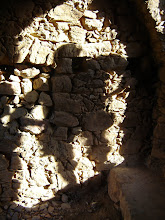Département du Nord: over the quarter of a century that I’ve lived ‘abroad’, although my visits are always transitory, I must have passed through this region a hundred or more times on my way to and from the channel ports. This windswept, dune-fringed coastline – which forms part of the exotically named Côte d’Opale – has a hinterland of polders and small rural communities and would seem to have more in common with the Low Countries than the landscapes we typically associate with France. Every self-respecting village may have its own épicerie, boulangerie and marchand de vins, but placenames like Ghyvelde, Hazebrouck, Spycker and Zuydcoote, seem to belie a Gallic past.
Indeed Gijvelde, Hazebroek, Spijker and Zuidkote were once bastions of a Flemish-speaking community that formerly existed in this far northern corner of France but which has now all but vanished. Over the centuries, the age-old dividing line between speakers of Germanic (Flemish) and Romance (French) dialects has been pushed slowly northwards, its de jure boundary now synonymous with the border of the Département du Nord and the Belgian (Flemish) province of West-Vlaanderen.
Up until the turn of the 18th century, the de facto language of literature and administration in French Flanders, which roughly equated to the current départements of Pas de Calais and Nord, was Flemish. But since the middle ages, and certainly after its incorporation into France proper in 1713, Flemish had been steadily losing ground to the Romance dialects of Picardy which were encroaching from the south. So in the middle ages, the language divide would have been much further south and stretched along the whole of the Pas de Calais coastline, beyond Calais (Kales) and as far down as Boulogne (Bonen). In the east of the region, Lille (Rijssel) marked the northern outpost of the French-speaking community.
Because of the overwhelming dominance of French above all other (minority) languages or dialects in Metropolitan France, Flemish has all but disappeared in French Flanders. The French government affords no legal status to Flemish and it is recognised by neither central nor regional institutions or given any educational facilities. There are no newspapers written in Flemish and no television station broadcasting programmes in the language. The Radio Uylenspiegel radio station, based in Cassel (Kassel) broadcasts 10% of its programmes in Flemish. This independent radio station originally operated illegally, until it gained legal status in 1982.
As a consequence, the Flemish dialect has been virtually wiped out. Flemish speakers are more or less confined to the Arrondissement de Dunkerque (Duinkerke), also known as Maritime Flanders, or the Westhoek. It is estimated that 20,000 people still speak the dialect of the region on a daily basis, with a further 40,000 speaking it occasionally, this out of a total population in the arrondissement of 375,000. These numbers of course, hide the fact that it is predominantly the elderly population that speaks the language.
According to one study 23 years ago (Röhrig, 1987, Die Sprachkontaktsituation im Westhoek), the generation of grandparents divided into 36% French-speakers, 38% Flemish-speakers and 26% using both languages, whereas the generation of parents divided into 75% French-speakers, 25% Flemish-speakers and 25% using both languages. Younger people used the languages in the proportions of 99% French, 1% Flemish and 8% both. That was a generation ago.
The future of the local language does not look bright. Standard Dutch is being offered in French primary and secondary schools in the region, but classes are never taught through the medium of Dutch and support from the national and regional authorities is lukewarm to say the least, so the authentic indigenous form of the language, French Flemish, will continue to lose even more ground.
Other links:










